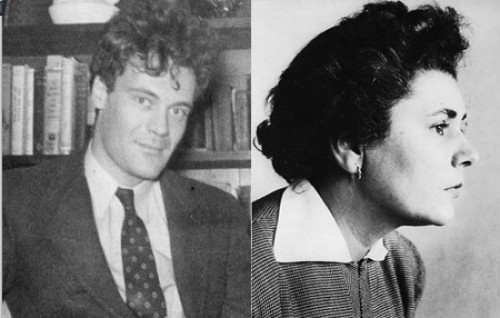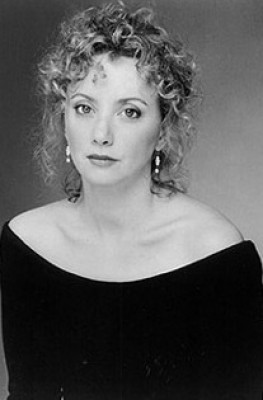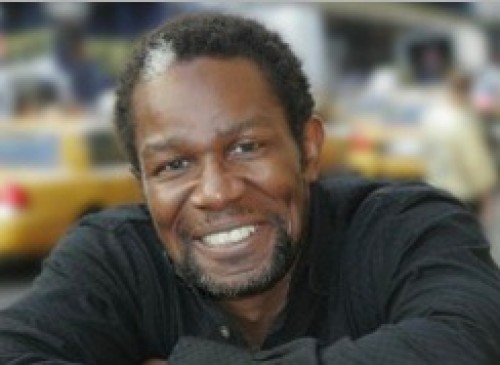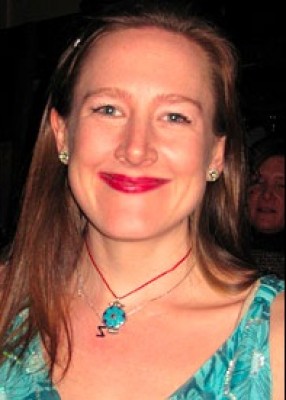Sarah Ruhl on Elizabeth Bishop and Robert Lowell
J. Smith-Cameron and John Douglas Thompson Captivate
By: Susan Hall - Nov 06, 2015
Dear Elizabeth
By Sarah Ruhl based on the letters of Eizabeth Bishop and Robert Lowell
J. Cameron-Smith and John Douglas Thompson
Presented by the Women's Project Theatre; Antje Ellermann (Scenic Design); Mary Louise Geiger (Lighting); Anita Yavich (Costumes).
Two minds are overlapping in “Dear Elizabeth”, a theatrical evening presented by the Women’s Project Theatre. Sarah Rule, the playwright, finished the play during a three-day stint in the Berkshires. She is not sure it is a play.
The audience quickly enters the correspondence between two people who are most often far apart, but who each yearn for the others' presence and accept, even relish it, in the form of letters. We are enthralled in thier vicarious relationship.
Bishop and Lowell were never lovers in the conventional sense, but as we are allowed into the world of their better selves, as they write to present their finer parts to the other, and in large measure succeed, we come to know love well.
John Douglas Thompson is an artfully warm Lowell, kindly, reaching out to Elizabeth, helping her understand her greatness as a poet.
Bishop in turn gives him sanctuary. She can’t be seduced by his lusty overtures. She prefers women and eventually partners with one.
Both poets comment on the poetry of their contemporaries, but the subject of their correspondence is their lives, the places they find themselves and other people they love. From all this messy stuff their feelings for each other develop.
Director Kate Whoriskey, a frequent collaborator with Ruhl, moves the actors to dramatic effect. A seminal moment occurs when the poets stand in the freezing Maine water and can’t take the plunge. It is a touchstone moment to which both poets return; the fork in the road not taken.
The set by Antje Ellermann is both satisfying and eye-pleasing. Two desks, both facing out, look identical, filled with papers and a light. The actors read their letters from book stands perched on desk tops. Suitcases and trunks filled with papers and objects circle around the backstage from which a drape is hung picturing a sky which could represent day or night, Brazil or Maine. Bishop's beloved toucan lives and dies on stage.
Tucked in a corner stage left is the narrator, a bridge from interval to interval. Polly Noonan's calm interludes move time forward. Thompson slouches tenderly into his seat, from time to time lurching up in excitement.
In a meeting at a Bard poetry conference, the poets embrace and at one moment Lowell makes a delicious grab for her ass. Whether or not she knew her sexual preference at the time is not clear. The relationship in real time didn’t go anywhere.
When the pair first met, they were already successes on the basis of two stunning first collections. "I loved him at first sight," Bishop recalled; and Lowell, fresh from the end of his first marriage, was also smitten.
Writing to her in 1974 from England, and a third marriage, Lowell remembered Elizabeth at that first meeting as "rather tall, long brown-haired, shy but full of design and anecdote as now," only to be corrected, a couple of weeks later: "Never, never was I tall ... and I never had long brown hair either ... so please don't put me in a beautiful poem tall with long brown hair!" For her part, Bishop recalled "the sad state of his shoes" and that "he needed a hair cut". She is clear.
The eye for detail and the endurance of the affection go together, "I can't tell a lie even for art, apparently," Bishop wrote to him in 1962. "It takes an awful effort or a sudden jolt to make me alter facts."
Playwright Ruhl smartly avoids comments on Bishop’s losing battle with alcoholism and Lowell’s recurring manic depression. The letter writers are not going to drown in their problems. There is an uplifting sense of triumph, although they never fully grappled with the demons of their lives.
Thompson captures Lowell's worldliness and ambition playing against Bishop's self-effacement and reserve. Bishop’s take was richer, combining determination and helplessness. Lowell did not understand helplessness.
Lowell talks about Bishop being the great ‘what might have happened” in his life. The play does not suggest that it might have. Such are the dreams we are made of.
Dear Elizabeth continues through December 5, with Harris Yulin, Cherry Jones, Rinde Ekert and others stepping into the lead roles. The play is a rich portrait of two humans who meet as fully as they can.





